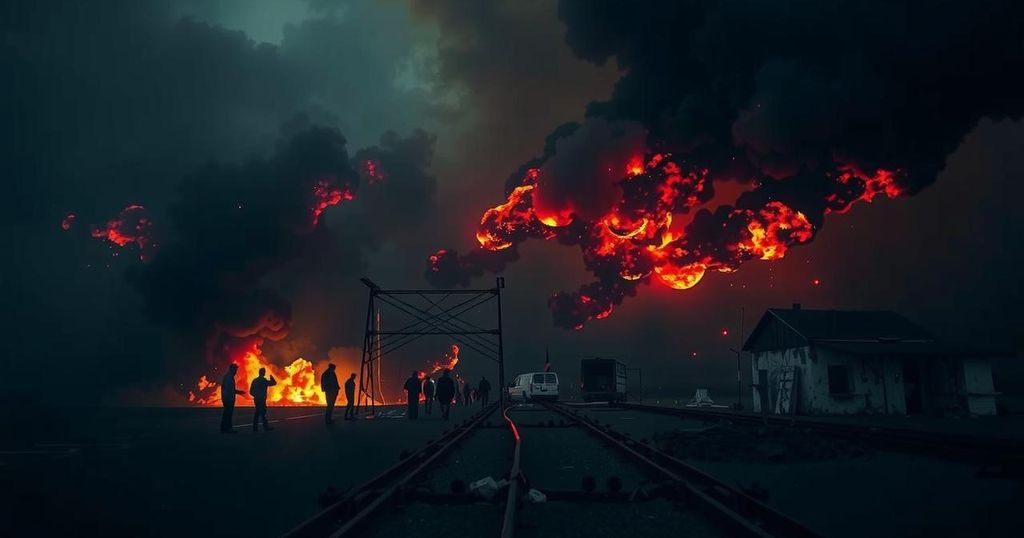Iraq Expresses Heightened Concerns Over Escalating Violence in Syria

Concerns are rising in Iraq over the conflict in Syria, particularly with the takeover of Aleppo by rebel forces. Prime Minister Mohammed Shia al-Sudani highlighted Iraq’s commitment to its security, while Iraqi officials show support for Assad’s government amidst reports of militia mobilization. The threat of a resurgent Islamic State looms, complicating Iraq’s response as it grapples with legal restrictions on military engagement in Syria.
As violence escalates in Syria, particularly in the city of Aleppo where rebel forces have gained significant control, Iraqi officials are increasingly concerned about potential repercussions for their nation. Iraqi Prime Minister Mohammed Shia al-Sudani emphasized during a conversation with Turkish President Recep Tayyip Erdogan that Iraq will not passively observe the situation in Syria. He stated that efforts will be made to safeguard the security of both Iraq and Syria amid these grave developments.
In light of the growing instability, senior Iraqi officials have reiterated their support for Syrian President Bashar al-Assad, especially as the regime confronts challenges from advancing rebel groups in northwestern Syria. Reports suggest that Iranian-backed Iraqi militias, affiliated with the Popular Mobilization Forces (PMF), are mobilizing to support the Assad government. Research associate Rasha al Aqeedi noted that while there are indications of increased military presence near the border, there is no confirmed evidence that Iraqi factions have crossed into Syria.
Despite assertions from PMF leaders and Iraqi officials denying incursions, the shared 600-kilometer border between Iraq and Syria remains a point of tension. Iraq has maintained a longstanding alliance with the Syrian government during the protracted civil strife, compounded by its close relationship with Iran, a principal ally of Damascus. One of the most pressing concerns for Iraq is the potential resurgence of the Islamic State (IS), which previously controlled substantial territories in both nations. Al Aqeedi pointed out that IS might attempt to exploit the situation to reassert its presence as rival factions emerge.
Iraqi security officials are wary of deploying forces to the Syrian border, fearing that such actions could leave regions like Nineveh and Kirkuk susceptible to IS attacks. Mohammed Kakai, from the Nineveh Provincial Council’s Security Committee, confirmed that security measures along the Syrian frontier have been intensified, including the installation of thermal security cameras, to monitor any threats effectively. Additionally, Iraqi authorities have strengthened collaboration with the Kurdish-led Syrian Democratic Forces (SDF) to share intelligence and respond to potential threats.
The situation in Syria has significantly deteriorated, particularly with developments in the city of Aleppo, prompting fears of violence spilling over into Iraq. The country shares a long border with Syria and has historically maintained ties with the Assad regime, complicating its position amid the burgeoning conflict. Added to the mix is the ongoing threat of the Islamic State, which remains a critical concern for Iraq’s security establishment, keeping them vigilant towards developments across their border.
In conclusion, Iraq faces a precarious situation as violence in Syria escalates. While Iraqi officials express a commitment to ensuring national security and preventing the spread of instability, the dynamics involving Iranian-backed militias, the potential resurgence of the Islamic State, and legal limitations on military engagement in neighboring countries pose significant challenges. Enhanced security measures and collaboration with the SDF are essential for Iraq to navigate this complex landscape effectively.
Original Source: www.voanews.com








